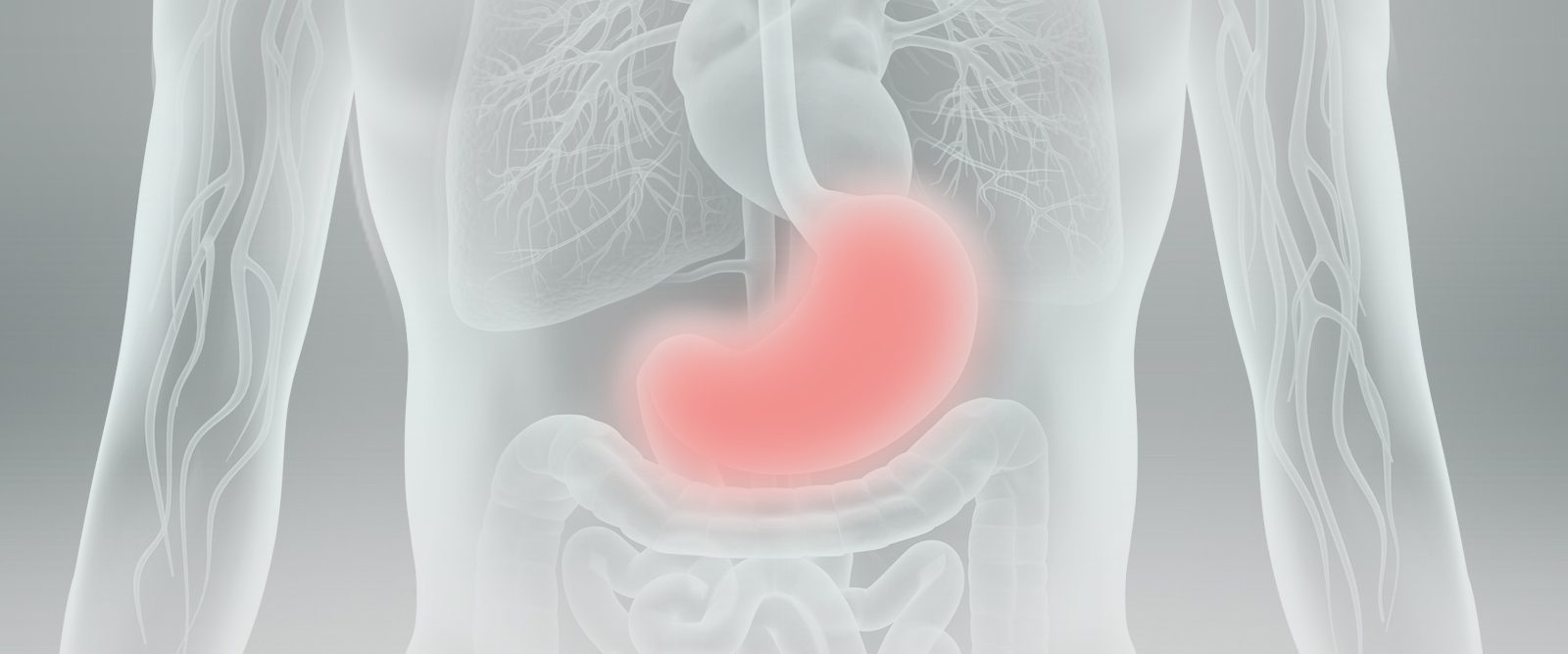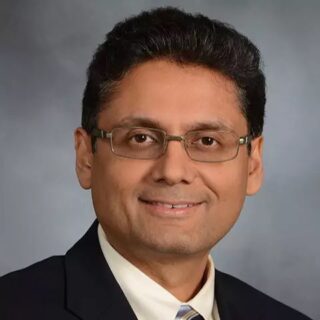Understanding Stomach Cancer
A medical oncologist explains the symptoms of stomach cancer, how it’s diagnosed, and the latest treatments.

In the United States, stomach cancer remains rare, accounting for about 1.5% of all new cancers diagnosed each year, according to the American Cancer Society. However, the disease was in the news recently when country music singer and songwriter Toby Keith died of stomach cancer at age 68.
“Stomach cancer has become less prevalent in the U.S. over the past 50 years,” says Dr. Manish Shah, director of the Gastrointestinal Oncology Program at NewYork-Presbyterian/Weill Cornell Medical Center. “There are almost 27,000 patients who are diagnosed each year. Because the incidence is relatively low, there isn’t a regular screening program for stomach cancer. Also, most people don’t have specific symptoms when it first develops, so it’s important to know your family history and be attuned to your body in terms of symptoms like nausea, getting full too quickly, abdominal pain, or weight loss.”
Several factors, such as family history and diet, can affect each person’s risk of developing the disease, but the lifetime risk of developing it is higher in men (about 1 in 100) than it is in women (about 1 in 155).
Health Matters spoke with Dr. Shah to learn more about the symptoms of stomach cancer, how it is diagnosed, and treated.

Dr. Maniash Shah
How does stomach cancer develop?
Dr. Shah: The stomach is an organ that is located anatomically between the esophagus and the small intestine. It digests food and serves as a reservoir — food that you eat during a meal resides in the stomach for some time, where it is digested. The stomach churns the food and liquifies it prior to delivering the food pulp into the intestines.
Stomach cancer, which develops slowly over years, begins in the cells lining the stomach. From there, it can grow into the wall of the stomach, extend into lymph nodes and then spread to other areas.
What are the risk factors for stomach cancer?
There are biological, environmental, diet, and genetic risk factors. Being male and 65 years or older are biological factors, and having a mother or father with stomach cancer is a hereditary risk factor, for example.
About 5% to 10% of people have a genetic predisposition to stomach cancer. One inherited syndrome is called hereditary diffuse gastric cancer – a rare predisposition syndrome caused by a mutation in a gene called CDH1. People with this syndrome have an extremely high chance of getting stomach cancer (about 1% per year, or 70% over their lifetime).
Two other genetic syndromes are Lynch syndrome and familial adenomatous polyposis (FAP). Lynch syndrome is also caused by mutations in one of the mismatch repair genes. It is commonly associated with increased risk of colorectal cancer, but also with other cancers including stomach cancer.
Helicobacter pylori infection (H. pylori) is another important risk factor for stomach cancer. It is a bacterium that lives in the stomach in about half the world’s population and is the cause of peptic ulcer disease. In some people, chronic infection with this bacterium can cause atrophic gastritis, which has the potential to cause severe changes to the stomach lining and put them at increased risk for stomach cancer.
One of the main risk factors of historical interest is having a high-salt diet. Before the availability of refrigerators in the early 1900s, people relied on canned goods and salted meats, which was associated with a much higher salt intake. This is believed to have contributed significantly to the high rate of stomach cancer years ago, which was once as high as colorectal cancer is today.
What symptoms do people experience?
Most people will have vague symptoms when it first develops. They may feel like they are getting full quickly, have weight loss, experience burning in the stomach, indigestion or nausea. They may have bleeding and anemia because of ulcers. (Stomach cancer can cause ulcers, which can cause some bleeding.)
How is stomach cancer diagnosed and what are the different stages?
Stomach cancer is diagnosed by an upper endoscopy that will allow for direct visualization of the cancer and biopsy of the tumor. An upper endoscopy is a long, thin tube that is inserted into the throat and passed down into the stomach. The gastroenterologist can examine the lining of the stomach and take biopsies of any abnormalities, including a tumor that may be present to make a pathologic diagnosis.
The stages of stomach cancer are stage one through four. The first two stages are defined as when the stomach cancer is localized to the wall of the stomach. The cancer normally starts on the inside wall and as it grows, it can grow into and through the wall and then into lymph nodes. Stage three is defined as a tumor that has grown through the stomach wall and involvement of regional lymph nodes, and then stage four is if the cancer has spread from the stomach to another organ. Since most patients don’t experience obvious symptoms of stomach cancer, it is very rare to identify the cancer in early stages.
What we recommend in the U.S. is that if people have a family history of the disease, which increases risk, and if they have symptoms, then they should let their doctors know and the patient and doctor can decide if an endoscopy is indicated.
How is stomach cancer treated?
For early-stage cancer, such as stage one, we would recommend surgery to remove the cancer. A lot of people ask if they do have surgery to remove the stomach or part of the stomach, will they still be able to eat normal meals and function. The answer is yes. One can essentially live a normal life even with stomach cancer surgery. There might be some adjustments, like having to eat smaller meals more often, or having to manage heart burn.
The other key thing that the stomach is necessary for is for the absorption of vitamins. Specifically, an intact stomach helps with the absorption of vitamin B12. If people need stomach cancer surgery, I always recommend they follow their vitamin B12 levels after surgery because if it is low, it will need replacement, which can be done by a monthly injection. We also routinely check for vitamin D and iron levels because these are other factors that may be impacted with stomach cancer surgery.
For stage two and three stomach cancers, the risk of recurrence following cancer surgery increases. For this reason, we advise combined modality therapy – which means a combination of chemotherapy and surgery.
In the fourth stage, where the cancer has spread to other organs, we find it important to not only confirm that the cancer has spread, but also understand the underlying molecular biology of the cancer. There are some biologic markers on the tumor that are important to test because it helps us guide therapy specific to the individual tumor. These new markers have been a major advance in the treatment of stomach cancer over the last 5 years. And because we have new targeted therapies that can specifically attack these markers, we are better able to treat stomach cancer and people are living longer.
What should people keep in mind?
The best advice is to stay attuned to your body. If you are experiencing symptoms that are not going away, check in with your doctor. Try to stay away from consuming salted foods and try to eat more fruits and vegetables. Be aware of your body’s symptoms in terms of weight loss or if you are getting full to quickly after starting a meal. If you have a family history of stomach cancer, speak with your doctor because you might benefit from additional genetic testing.
Our treatments for stomach cancer have improved significantly over the past 10-15 years. We work closely with our colleagues in radiation oncology, surgery, and gastroenterology to help diagnose, treat, and manage patients with stomach cancer. Together, this multidisciplinary approach has improved patient outcomes.
Dr. Manish Shah is the chief of the Solid Tumor Oncology Service and co-director of the Center for Advanced Digestive Care at NewYork-Presbyterian/Weill Cornell Medical Center and director of the Gastrointestinal Oncology Program in the Division of Hematology and Medical Oncology at Weill Cornell Medicine. His clinical and academic focus lies in the care of patients with cancers of the gastrointestinal tract. He is a national and international thought leader in drug development and the treatment of gastrointestinal malignancies. He is a distinguished peer-review funded investigator and has led several Phase I, II and III clinical trials in patients with advanced gastric cancer.

